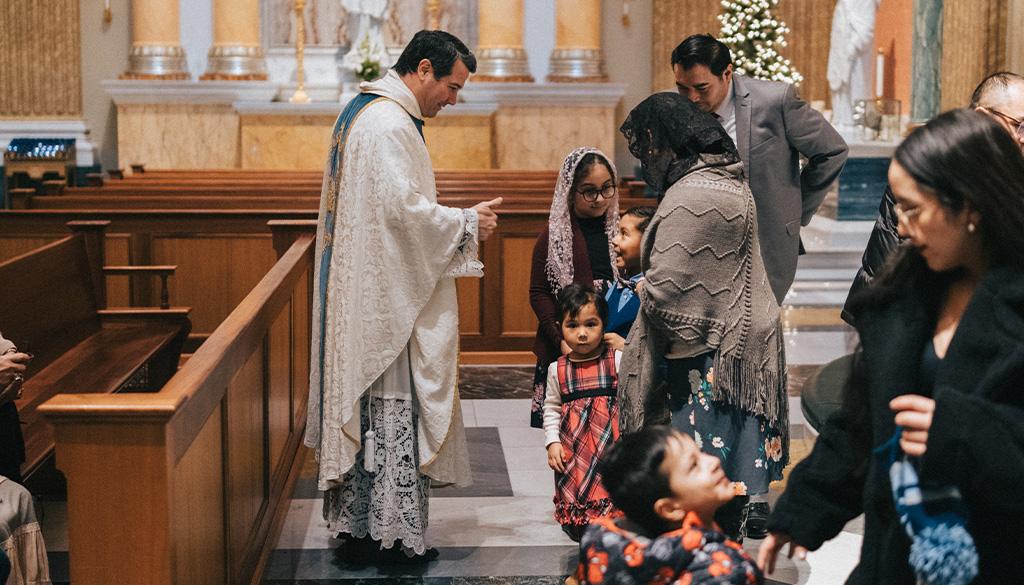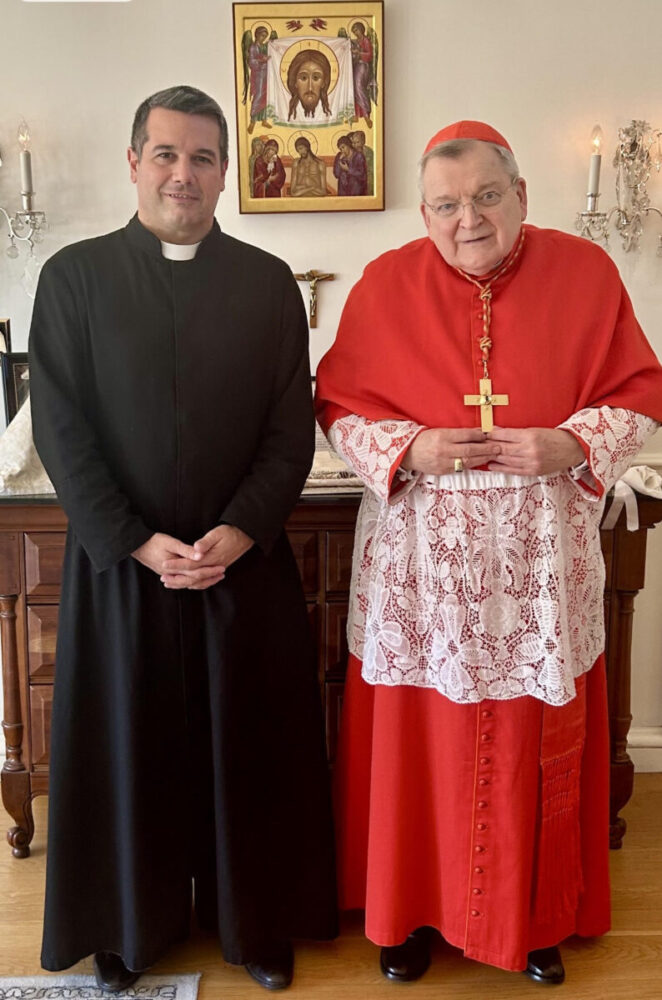Catholic Rebirth In The Face Of The Crisis Of The Ephemeral
Postmodernity has deeply penetrated the Catholic Church. But there is a remedy.

For years now, I have been observing a phenomenon that is intensifying, especially in the United States: the sustained growth of Catholicism, particularly among young people. It is not a fad or a coincidence. It is the pendulum effect of a culture that has taken relativism and secularism to such an extreme that many are beginning to look eagerly for what does not change: a firm truth and a faith with roots. Thus, many are discovering or returning to the Catholic faith in search of a solid anchor, as several media outlets have pointed out.
The modern world has exalted originality so much that it has ended up emptying itself of content. The result is a generation tired of ever-changing proposals, which urges it towards a rediscovery of what is essential. And it is precisely here that the Catholic faith - with its traditional liturgy, doctrinal clarity, and spiritual beauty - re-emerges as a beacon. Personally, the most convincing proof of this is the almost half a million people who follow this simple priest for the mere fact of speaking openly about God and the Catechism on his YouTube channel.
Today I exercise my ministry in the United States, where I have resided since October 2024 when Cardinal Raymond Burke invited me, after consulting with the Bishop Gerard Battersby of La Crosse, Wisconsin, and my ecclesiastical superiors of the Order of St. Elias, to serve as chaplain for the Hispanic pilgrims to the Shrine of Our Lady of Guadalupe. It never ceases to amaze me to see here churches filled Sunday after Sunday with young couples, large families, silence, recollection, and a sense of the sacred. There is a thirst for God, but not of a God molded to the taste of the consumer, but of the God who does not change, who alone suffices, as St. Teresa de Avila would say.
However, this renewal is not without its challenges. Postmodernity has penetrated deeply even within the Church. There are those who would like the Church to adapt to the world, as if the Bride of Christ had to change her face every decade. But the Church is not the owner of revealed truth: she is its custodian. And her mission is to teach it unambiguously, not to reformulate it according to opinion polls.
We are not dealing with a simple tension between conservatives and progressives. We are facing something more profound: the difference between living the Catholic faith in its entirety or diluting it in adapted versions that renounce conversion.
Today many, even within the Church, want an institution that is inclusive without asking for anything, neither transformation, nor sacrifice, nor truth. But a faith without demanding something is like salt without savor.
In this challenging context, the recent election of Pope Leo XIV has been a blessing. His attempt to restore unity and clarity to a fragmented Church is a sign of hope. But unity cannot be imposed by decree or sustained by ambiguous formulas. True communion can only be founded on truth. Without it, all agreement is artificial.
As a priest, historian, and son of the Church, I believe that this is the time to recover what is essential.
It is not a question of nostalgia, but of fidelity. What the Church has believed for centuries is still valid today. To confirm that faith, without concessions, is the great challenge of the present.
Because when the Church is faithful, she is fruitful. And this fidelity is bearing fruit.
Catholicism grows where it is preached with clarity, celebrated with dignity and lived with coherence. Not because it is easy, but because it is true.
And truth, in the end, always attracts.
Rev. Javier Olivera Ravasi is an Argentine priest, attorney, and professor of law. He holds doctorates in Philosophy and History. He is a parochial vicar in the Archdiocese of San Francisco, and chaplain at the Shrine of Our Lady of Guadalupe in La Crosse, Wisconsin. He blogs at QueNoTeLoCuenten
Depicted below, left to right, are: Fr. Javier Olivera Ravasi OSE and Cardinal Raymond Burke.
